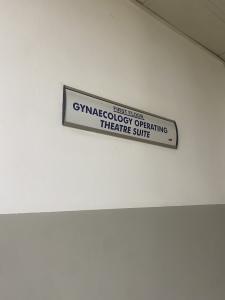This is a four-week rotation, global health elective in Lagos, Nigeria where I will immerse myself inobstetrical and gynecological disease issues in a large urban Nigerian public hospital and contrast the resources available in a high resource setting such as GWUH. I will play an active role in obstetric and gynecologic care in Nigeria during this elective and will also explore opportunities for innovation and research to improve healthcare resources in an urban setting in a low-middle income country and looking at how these same innovations can be implemented in similar maternity care diseases in the United States.
The population of Lagos is estimated to be over 20 million people, making it one of the most populous cities in Africa. Lagos, like many other parts of Nigeria, faces challenges in providing adequate reproductive health especially in underserved communities within Lagos, Nigeria. Key issues and challenges in reproductive healthcare include maternal mortality and access to family planning.
Working in the LASUTH Obstetrics and Gynecology department will allow me to focus on taking care of this marginalized community in an urban setting and transfer innovative tools that have worked in other LMIC to improve women’s health care. Given the population of patients I take care of in residency is usually from lower resource or socioeconomic setting there are often similarities to that of the populations seen in a global health context, learning how to care for patients in Nigeria can spark ideas for innovation that can be translated to the clinical context at holy cross and may be feasible for our patients who typically come from low SES backgrounds. Additionally spending time in low middle income countries will fine tune my culture competence when seeing patients from similar background at our underserved clinic given our large immigrant population but also provide much needed context clues on what the healthcare system looks like in our patients various home countries. The data shows providing women with good access to quality reproductive healthcare breaks poverty cycles. I hope this project is something I will be able to continue beyond residency and I believe the sustainability will be in the development of a tool that can be implemented in multiple similar settings.











